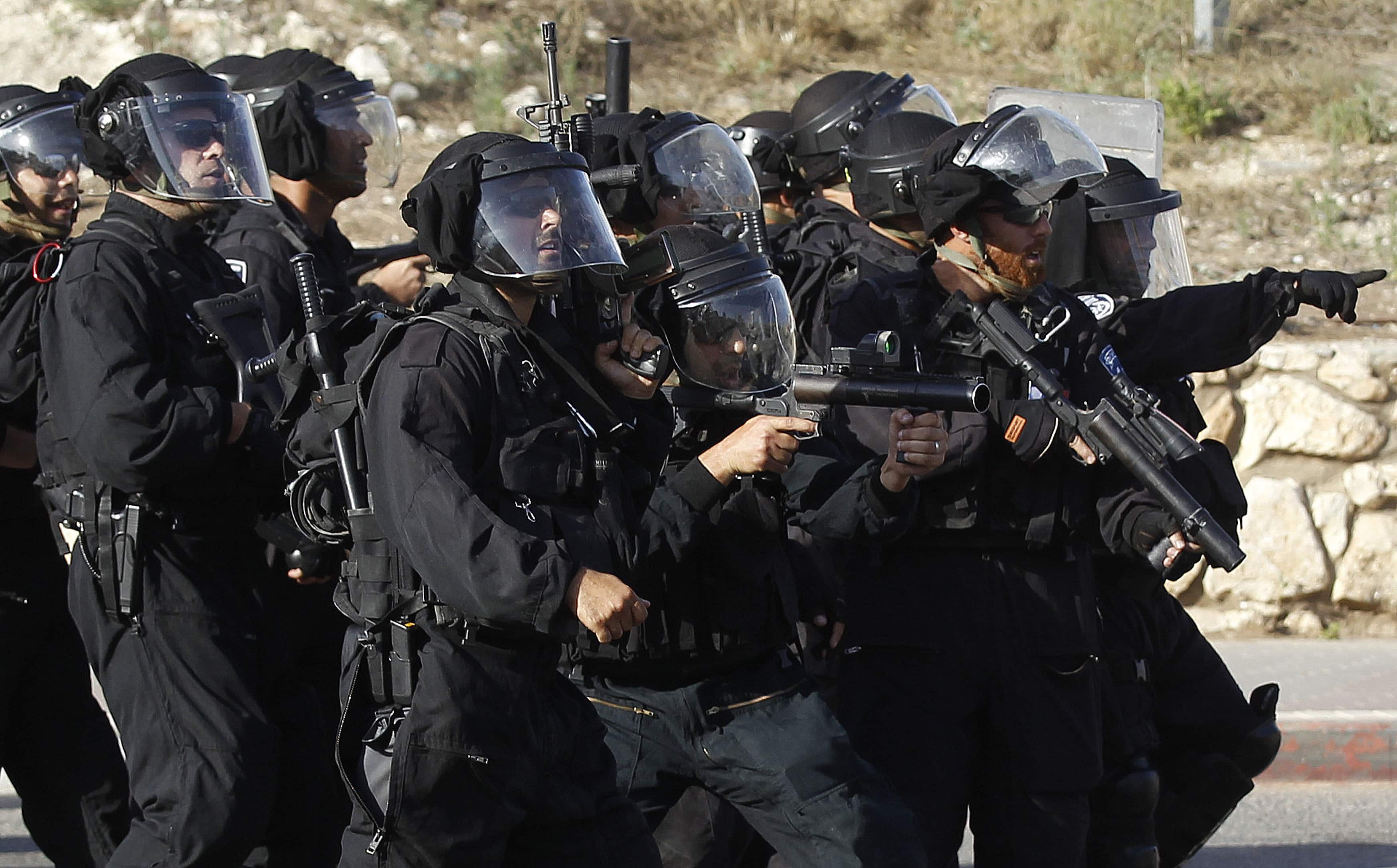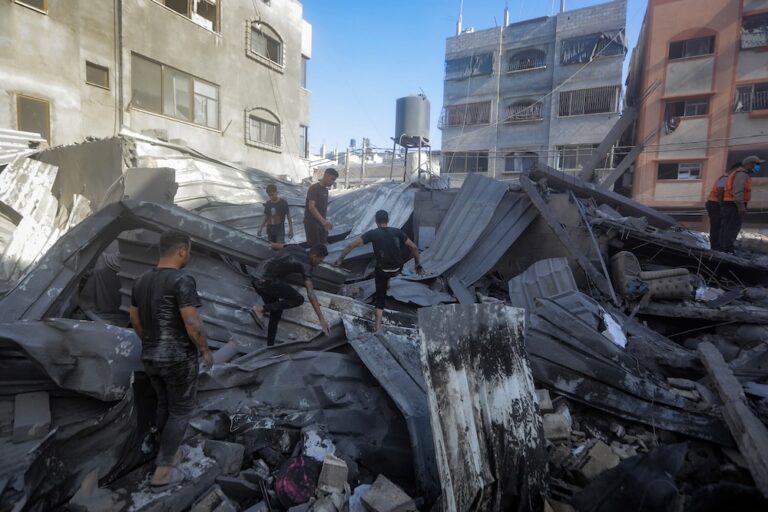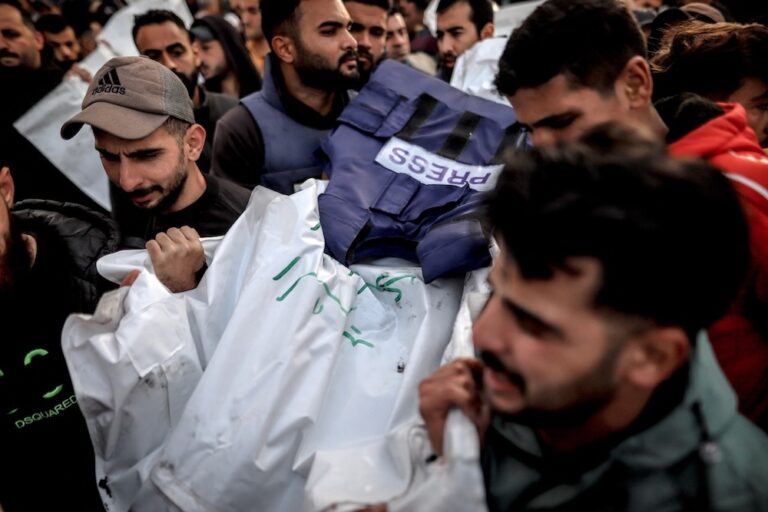Journalists and media outlets have found themselves victims of a military operation launched by Israel in the West Bank after the disappearance of three Israeli settlers who, Israel claims, were kidnapped by Hamas.
Journalists and media outlets have found themselves victims of a military operation launched by Israel in the West Bank after the disappearance of three Israeli settlers who, Israel claims, were kidnapped by Hamas.
Since the first days of the military crackdown, Palestinian journalists have been arrested, detained, threatened, and many of them have been prevented from covering the events. Different media outlets have been raided and expensive equipment has been seized.
According to Mousa Rimawi, the general director of the Palestinian Center for Development and Media Freedoms (MADA), the center has been closely monitoring violations against freedom of expression and media freedom since the operation began.
MADA monitored various forms of violations including the raiding of media offices and the confiscation of equipment and private files, as suffered by Trance Media which lost a million dollars worth of equipment.
Turbo Design, a media company which publishes the English-language magazine “This Week in Palestine” and its sister company Jeel Publishing, which publishes the Arabic-language youth magazine “Filistin Ashabab”had seven of their computers confiscated, as well as servers and archives.
Below, MADA briefly lists the recorded violations:
On 17 June 2014 at 1 am, Israeli Occupation Forces (IOF) arrested Al-Aqsa TV General Director in the West Bank Aziz Kayed. Israeli forces also prevented Al-Quds.com photographer Abdulrahman Younes from taking photos of a traffic jam caused by the IOF at the Container checkpoint in the West Bank.
On 18 June at dawn, Israeli forces raided the premises of Trance Media in Ramallah, Hebron, and Nablus seizing all equipment. On the same day, they detained Ajayl Radio Network’s photographer Yehya Habayib while he was covering different attacks committed by the forces in Hebron. Habayib was released a few hours later.
On 19 June, Israeli soldiers prevents journalists from covering the forces’ raid of Birzeit University.
On 20 June, they detained Palmedia photographer Sala Ziad while he was snapping pictures of the IOF’s raid on Saleh Arouri’s house in Aroura, norht of Ramallah.
On 21 June, Palmedia’s headquarters in Al-Balou’ area near Ramallah were raided. The media company’s headquarters also host other media outlets such as Al-Quds TV, Russia Today, and Kuwait TV. The IOF seized the company’s electronic storage devices and broke some equipment.
On 22 June, Israeli forces detained Al-Aqsa TV cameraman Suhaib Alasa after raiding his house in Al-Obaidiya near Bethlehem. He was released after a few hours of investigation. On that day, Israeli forces also raided the offices of Turbo Design and Jeel Publishing (mentioned above) in Ramallah.
Rimawi points out that the Israeli government has always seized any opportunity available to it to violate the rights of journalists and to target media outlets. However, he says, these vioaltions have increased dramatically since the start of Israel’s military crackdown entitled Operation Brother’s Keeper which was first created as a result of the disappearance of the three teenage settlers.
Rimawi mentioned that journalists have become part of the collective punishment imposed by Israel on the Palestinian people.
MADA condemns any and all types of violations against journalists and media freedoms as well as the Israeli policy of collective punishment.
MADA will contact international organizations to encourage them to effectively pressure the Israeli government to end its attacks against journalists. It also demands that the Israeli occupation be held accountable for all its aggressions against media freedoms in Palestine.
The impunity enjoyed by the Israeli occupation and the absence of a serious deterrent is no less damaging than an encouragement for it to continue its crimes unabated.
For more details on each violation, please contact MADA.



